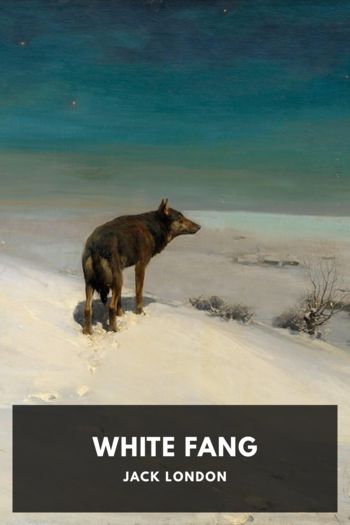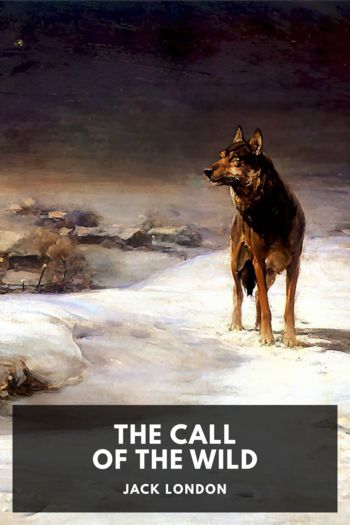Songs of a Sourdough by Robert W. Service (read after TXT) 📕

Description
Songs of a Sourdough is a collection of poems written in 1907 by Robert W. Service while he was working as a bank teller in Whitehorse, Yukon. The best-known poems are those describing life during the Klondike Gold Rush of the late 1890s, especially his ballads “The Shooting of Dan McGrew” and the “Cremation of Sam McGee.”
While some of Service’s work had previously appeared in newspapers and periodicals, Songs of a Sourdough was his first book. Publishers initially questioned the “moral tone” of the work with its bawdy poems depicting not just the hard lives and isolation of Yukon prospectors but also the drinking, gambling, and prostitution that was prevalent in Dawson City. However, despite these reservations, the book was an immediate success. In Canada, there were ten printings and more than 12,000 copies sold in the first year alone. Dozens of additional printings followed in subsequent years, including editions issued in Britain and the United States.
Read free book «Songs of a Sourdough by Robert W. Service (read after TXT) 📕» - read online or download for free at americanlibrarybooks.com
- Author: Robert W. Service
Read book online «Songs of a Sourdough by Robert W. Service (read after TXT) 📕». Author - Robert W. Service
He passes, pauses, then comes slowly back
And listens there—an audience of one.
She sings—her golden voice is passion-fraught
As when she charmed a thousand eager ears;
He listens trembling, and she knows it not,
And down his hollow cheeks roll bitter tears.
She ceases and is still, as if to pray;
There is no sound, the stars are all alight—
Only a wretch who stumbles on his way,
Only a vagrant sobbing in the night.
There’s a four-pronged buck a-swinging in the shadow of my cabin,
And it roamed the velvet valley till today;
But I tracked it by the river, and I trailed it in the cover,
And I killed it on the mountain miles away.
Now I’ve had my lazy supper, and the level sun is gleaming
On the water where the silver salmon play;
And I light my little corncob, and I linger softly dreaming,
In the twilight, of a land that’s far away.
Far away, so faint and far, is flaming London, fevered Paris,
That I fancy I have gained another star;
Far away the din and hurry, far away the sin and worry,
Far away—God knows they cannot be too far.
Gilded galley-slaves of Mammon—how my purse-proud brothers taunt me!
I might have been as well-to-do as they
Had I clutched like them my chances, learned their wisdom, crushed my fancies,
Starved my soul and gone to business every day.
Well, the cherry bends with blossom, and the vivid grass is springing,
And the starlike lily nestles in the green;
And the frogs their joys are singing, and my heart in tune is ringing,
And it doesn’t matter what I might have been,
While above the scented pine-gloom, piling heights of golden glory,
The sun-god paints his canvas in the west;
I can couch me deep in clover, I can listen to the story
Of the lazy, lapping water—it is best.
While the trout leaps in the river, and the blue grouse thrills the cover,
And the frozen snow betrays the panther’s track,
And the robin greets the dayspring with the rapture of a lover,
I am happy, and I’ll nevermore go back.
For I know I’d just be longing for the little old log cabin,
With the morning-glory clinging to the door,
Till I loathed the city places, cursed the care on all the faces,
Turned my back on lazar London evermore.
So send me far from Lombard Street, and write me down a failure;
Put a little in my purse and leave me free.
Say: “He turned from Fortune’s offering to follow up a pale lure,
He is one of us no longer—let him be.”
I am one of you no longer: by the trails my feet have broken,
The dizzy peaks I’ve scaled, the campfire’s glow,
By the lonely seas I’ve sailed in—yea, the final word is spoken,
I am signed and sealed to nature. Be it so.
This is the payday up at the mines, when the bearded brutes come down;
There’s money to burn in the streets tonight, so I’ve sent my klooch to town,
With a haggard face and a ribband of red entwined in her hair of brown.
And I know at the dawn she’ll come reeling home with the bottles, one, two, three;
One for herself to drown her shame, and two big bottles for me,
To make me forget the thing I am and the man I used to be.
To make me forget the brand of the dog, as I crouch in this hideous place;
To make me forget once I kindled the light of love in a lady’s face,
Where even the squalid Siwash now holds me a black disgrace.
Oh, I have guarded my secret well! And who would dream as I speak
In a tribal tongue like a rogue unhung, ’mid the ranch-house filth and reek,
I could roll to bed with a Latin phrase, and rise with a verse of Greek?
Yet I was a senior prizeman once, and the pride of a college eight;
Called to the bar—my friends were true! but they could not keep me straight;
Then came the divorce, and I went abroad and “died” on the River Plate.
But I’m not dead yet; though with half a lung there isn’t time to spare,
And I hope that the year will see me out, and, thank God, no one will care—
Save maybe the little slim Siwash girl with the rose of shame in her hair.
She will come with the dawn, and the dawn is near; I can see its evil glow,
Like a corpse-light seen through a frosty pane in a night of want and woe;
And yonder she comes, by the bleak bull-pines, swift staggering through the snow.
When a man gits on his uppers in a hardpan sort of town,
An’ he ain’t got nothin’ comin’, an’ he can’t afford ter eat,
An’ he’s in a fix fer lodgin’, an’ he wanders up an’ down,
An’ you’d fancy he’d been boozin’, he’s so locoed ’bout the feet;
When he’s feelin’ sneakin’ sorry, an’ his belt is hangin’ slack,
An’ his face is peaked an’ grey-like, an’ his heart gits down an’ whines,
Then he’s apt ter git a-thinkin’ an’ a-wishin’ he was back
In the little ol’ log cabin in the shadder of the pines.
When he’s on the blazin’ desert, an’ his canteen’s sprung a leak,
An’ he’s all alone an’ crazy, an’ he’s crawlin’ like a snail,
An’ his tongue’s so black an’ swollen that it hurts him fer to speak,
An’ he gouges down fer water, an’ the raven’s on his trail;
When he’s done with care and cursin’, an’ he feels more like to cry,
An’ he sees ol’ Death a-grinnin’, an’ he thinks upon his crimes,
Then he’s like ter hev’ a vision, as he settles down ter die,
Of the little ol’ log cabin an’ the roses an’ the vines.
Oh, the little ol’ log cabin, it’s a solemn shinin’ mark
When a feller gits ter sinnin’, an’ a-goin’ ter the wall,
An’ folks don’t understand him, an’ he’s gropin’ in the dark,
An’





Comments (0)